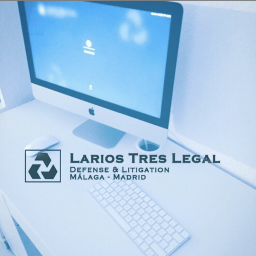Insurtech: The Technological Revolution that is changing insurance
The world of insurance is experiencing an unprecedented transformation thanks to Insurtech. This set of technological innovations will revolutionise the way we take out and manage our policy, making it more accessible, faster and safer. Within these innovations, three key technologies stand out: blockchain, the Internet of Things (IoT) and smart contracts.
However, they are not all advantages. These technologies also raise some important concerns, especially in terms of privacy and data security.
Blockchain.
One of the most promising technologies in the insurance field is blockchain. This technology offers a secure and decentralised system for managing data and transactions, which can reduce administrative costs and increase transparency in the sector. A clear example is the Blockchain Insurance Consortium B3I, formed by industry giants such as Allianz, Generali, Mapfre, Aegon and Liberty.
Can you imagine a system where every transaction is 100% secure and transparent? That’s what blockchain offers. This technology, which is already being used by major insurers such as Allianz, Generali and Mapfre, makes it possible to reduce administrative costs and increase trust in processes thanks to its decentralised nature.
However, the very transparency it promises can become a risk to consumers’ privacy. Although transactions are decentralised and encrypted, the data stored on the blockchain is immutable and publicly accessible in many cases. This means that once data is recorded, it cannot be deleted or altered, which could compromise users’ privacy in the long run.
Internet de las Cosas (IoT).
Thanks to the Internet of Things (IoT), insurance companies can access real-time information from devices such as your smartwatch, tablet, car or computer. This allows policies to be customised to your specific needs and risks.
But what about sensitive consumer data? These devices collect information that can include everything from your location to your lifestyle habits, posing serious risks of surveillance and data operation. In a world where more and more devices are connected, insurers could have access to an excessive amount of personal information. And while they promise to use this data to improve policies, there is also a risk that it could be used to increase prices or deny cover to customers who data suggests are high risk.
Smart Contracts.
Smart contracts, combined with blockchain and IoT, offer an online, decentralised cryptographic database that facilitates the management and execution of insurance contracts. From premium payments to claims management, these contracts reduce waiting times and make everything run more efficiently. The best part? Everything is handled without human intervention, which eliminates potential errors and streamlines the processes of claim reporting and benefit collection.
However, there is a risk that poor programming or lack of flexibility in certain situations can lead to decisions that are detrimental to users. In addition, these contracts rely on a significant amount of personal data to function properly, raising concerns about the exposure of private information.
Normativa Aplicable.
It is important to note that, despite technological advancement, the insurance industry is subject to a number of regulations and laws governing its operation. These include the Insurance Contract Law, the Law on Information Society Services and Electronic Commerce, the Law on Personal Data Protection and other laws related to the defence of consumers and users.
The Insurtech sector faces a major challenge: how to comply with strict data protection regulations, such as the Organic Law on Personal Data Protection or its Regulation, in an environment where personal data and its traffic are the fuel that drives new technologies. While these regulations seek to ensure that consumers’ rights are protected, technological advances can outpace regulatory capacity, leaving loopholes that could be exploited.
Conclusion
Insurtech is transforming the insurance industry, bringing efficiency, personalisation and security. However, technologies such as blockchain, IoT and smart contracts also present significant risks to consumer privacy. The key will be to strike a balance between harnessing the benefits of these innovations and protecting users’ personal information. In the meantime, it is crucial that consumers are informed about how their data is being used and that insurers take proactive steps to ensure that their privacy is protected.
AuthorSalvador Cabello Guillén Attorney - Abogado
Contact information+ 34 652 724 645
salvador.cabello@lariostreslegal.com
Services Corporative Litigation and arbitration Responsabilidad civil Civil liability NewTech



